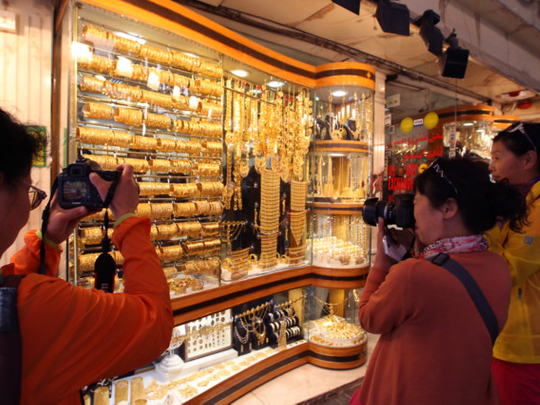
The year that just went by was indeed interesting in so many ways. On the financial front, there were people in the UAE who piled up more debt or got out of it, while others either lost money or won some. Whatever the past year was like, everyone is looking forward for things to get better in the months ahead. With that in mind, here’s a quick look at what financial trends will come down the pike in 2014:
Mortgage uptake to slow down
When the recession struck, fewer homebuyers retreated from the property market. Besides, credit requirements tightened and banks were somehow hesitant to lend to just anybody. Recently, liquidity among banks has improved and investor interest in UAE property has returned.
It is normal to expect some investors to start looking at getting a mortgage. However, with the rules recently changed to require first-time buyers to put up 25 per cent of a property unit’s value out of their own pockets, fewer people in the expatriate community would qualify for a mortgage and invest in real estate this year.
“The rules are changing to enable expats to borrow no more than 75 per cent of the price of a property. This is likely to mean they must sell their property in their home country to raise sufficient money to pay 25 per cent deposit in UAE, and costs on top. This has to dampen enthusiasm to buy property here, so I expect to see a decline in the number of mortgages,” said Steve Gregory, managing partner at Holborn Assets.
Gold fans will remain loyal
Last year was said to be the worst time for the precious metal. For the most part of 2013, gold prices trended down. The decline was, however, good news for consumers in the retail sector, as it allowed them to purchase more jewellery and bars at favourable rates.
A World Gold Council report said that consumers across the globe showed increasing demand for higher carat pieces last year, while demand for bars and coins went up 6 per cent to 304.2 tonnes. The growth mainly came from Asia and the Middle East, as well as Turkey.
Gold retailers in the UAE are confident the demand trend will continue this year, whether the price will continue to slide or go back up in the next few months
“We have seen continued growth of the jewellery sales at our showrooms in 2013 and we feel this trend will continue this year. Our customer profile associates gold jewellery with culture and tradition, hence the price does not play a major role in their purchase decision,” said Joy Alukkas, chairman and managing director of Joyalukkas Group.
Consumer outgoings on the up
Inflation is an inevitable part of life. Now that the economy is back on track, expect prices on basic essentials, from food, clothing to housing, to go further up.
Financial advisors like Gregory expect that expenditure on rentals will take up more of people’s income this year. Alp Eke, senior economist at the National Bank of Abu Dhabi, predicted that housing rents could increase by 20 per cent this year and in 2015, although some experts said the new rent decree could cushion any inflationary pressure.
Costs in general have been on the rise, with the UAE consumer price index up 1.40 per cent last November compared with the same period in 2012. Education posted the highest increase at 4.39 per cent, followed by food and soft drinks (2.96 per cent), furniture and household goods (1.95), beverages and tobacco (1.29), and housing (1.17 per cent).
While the government is finding ways to avoid speculative increases, it is critical that consumers keep track of their outgoings and find ways to minimize expenses before things get out of control.
“The rents [alone] are on the rise. We must take steps so that the cost of living and accommodation do not get out of proportion with the income of residents. We have to provide a decent quality of accommodation that is affordable to the families residing and working here,” said Ashok Sardana, managing director at the Continental Group.
Return of credit cards and personal loans
As consumer confidence has improved people are more open to spend and take more risks. Now that banks are again willing to extend personal loans and are offering unsolicited credit cards, consumer borrowings are bound to go on an upward roll.
“I anticipate people borrowing to meet their daily needs when school fees, electric and water bills and rental costs become too large to manage,” said Gregory.
“Consumer lending is bound to increase. Both the consumers and the institutions need to remember the lessons learned during the crisis and be prudent with their financial life. Financial planning trends do not change on a yearly basis. It takes long-term planning. We need to cultivate the habit of saving first and then spending and stick to the financial plans we have set for ourselves,” added Sardana.





